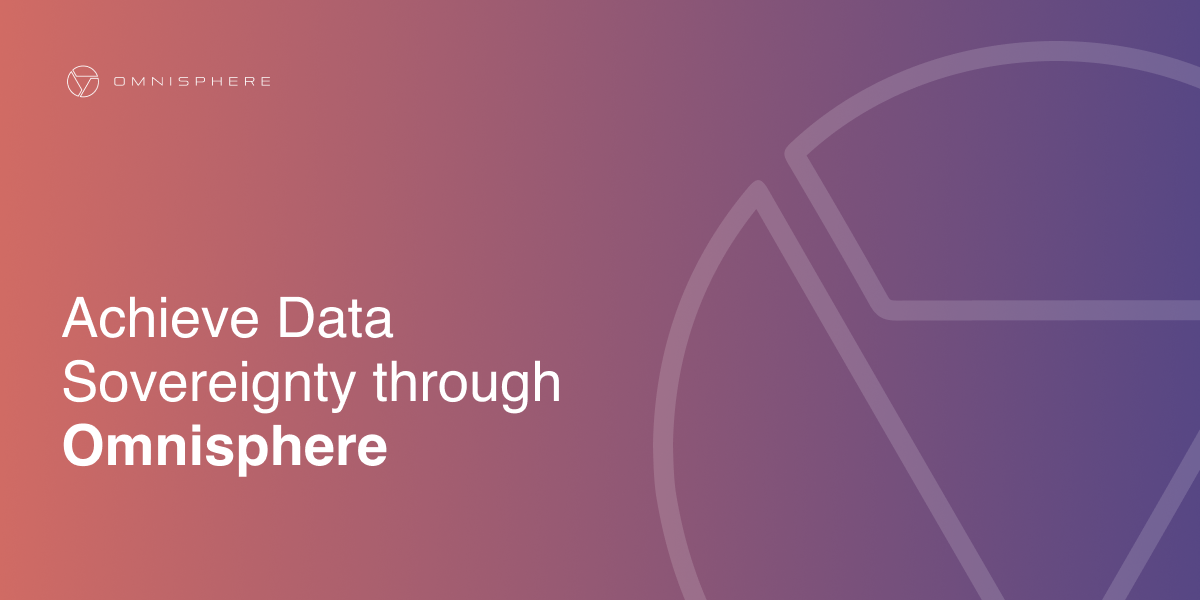Web 3.0 is one of the biggest buzzwords flying around the world of social media this year. And for good reasons, Web 3.0 innovations are on the verge of disrupting the digital world.
In a world where centralized systems are making billions of dollars selling our personal information, it is no wonder decentralized systems are gaining steam. But there is one big problem. Despite hundreds of decentralized applications and thousands of developers studying Web 3.0, to date these applications have not guaranteed users data sovereignty. What is that and why is it important?
Before we answer that, we need to clear up what Web 3.0 is and why it is important. Breaking down the phases of web growth:
- First there was Web 1.0 – broadly used first in the 1990s, the worldwide web was composed mainly of static web pages uploaded by web developers.
- Then there was Web 2.0, which launched in the early 2000s. This refers to the change from mainly static web pages to interactive, user-generated content. For example, social media sites such as Facebook, Twitter, TikTok and Twitch, as well as apps like Uber and Airbnb. Web 2.0 has created massive social media networks and massive volumes of data built on centralized networks on the Internet.
- Web 3.0 refers to the next generation of the web – with decentralized data networks that are open, trustless and permissionless. Made possible by the invention of the blockchain, Web 3.0 enables a future where users and machines interact on a decentralized network exchanging data and value with other counterparties via a peer-to-peer network layer.
Data Sovereignty
What is data sovereignty? Sovereignty means complete and total control over something. Data sovereignty would refer to the control of data, in this case, your data. This includes the concepts of privacy and security, as well as monetization. Over the past few years, it has come to the attention of the public that Web 2.0 companies have become vastly powerful and rich by selling their users' data. They and they have obtained ownership of that data.
Many blockchain projects have boasted that they are Web 3.0 and exist to solve these problems. However, while there are popular decentralized applications and Web 3.0 projects, they have not solved the problem of data sovereignty. Let's look into why that is, why it hasn't been solved yet, and why Omisphere gives users true data sovereignty.
Three Big Problems
Blockchains find themselves caught between three problems, which could be viewed as a triangle:
- Scalability
- Decentralization
- Security
The difficulty with blockchains is that it has been a situation of give-and-take. Generally, a full solution to one of these three makes the other two worse.
Blockchain networks generally still run their infrastructure on centralized capacity, and most Web 3.0 applications rely on centralized providers. Running blockchains carries a high cost and Web 3.0 development can be complicated and expensive. Scalability issues of blockchain networks have been a thorn in their side since the early days of Bitcoin.
A Three-Layer Solution
Since the problem is triple in nature, the Omnisphere blockchain brings a unique solution that is triple in nature; a three-layer ecosystem. Here is the anatomy of the solution:
Layer Zero, which is called the OMNIGRID. This is a distributed peer-to-peer layer of computers that provide decentralized computing power, storage, as well as network capacity.
Layer One, which is called the OMNICHAIN, is a blockchain solution that runs on the OMNIGRID's decentralized capacity. It hosts OMNISPHERE's smart contract and validates the transactions in OMNIVERSE.
Layer Two, which is called the OMNIVERSE. This is the application layer containing unlimited full-solution decentralized applications or UNISPHERES. Each application on the OMNIVERSE is deployed in its own UNISPHERE. These applications enjoy total user privacy, top-level security and immunity to censorship or data espionage.
Digital Identity
A crucial and unique aspect of the Omnisphere blockchain is that of digital identity. WHen participating in common Web 2.0 programs such as Google, Facebook, or Uber, you exist once on every platform.
In the Omnisphere, users exist only once, which is a vital part of ensuring full data sovereignty. Users must exist only once and exert full control over their data.
Omnisphere has charted a bold course to build the first blockchain or Web 3.0 platform that gives data sovereignty to every individual user.
Source: NewsBTC.com

No comments:
Post a Comment